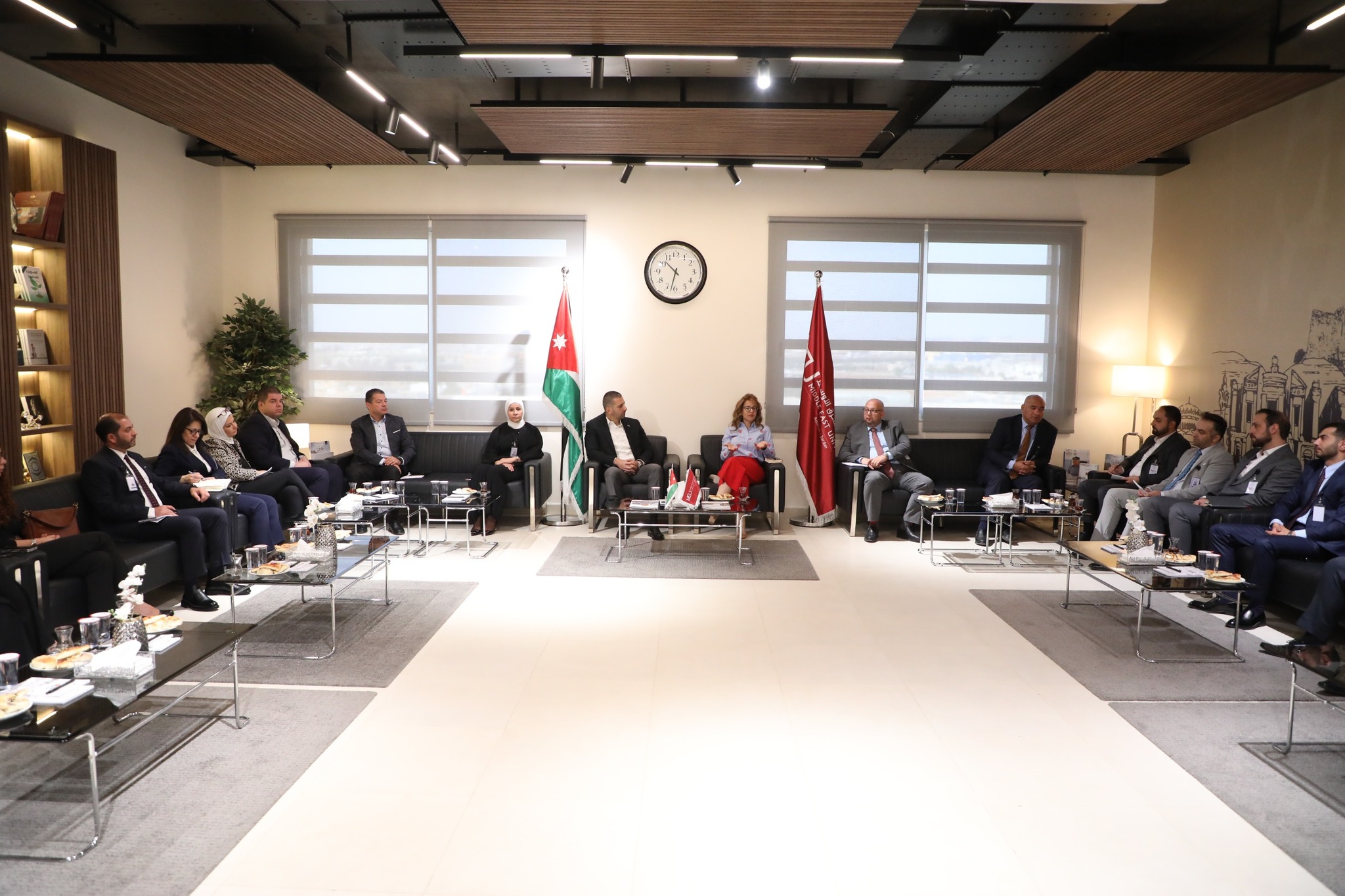
Middle East University held a meeting with a number of faculty members who have completed their scholarship programmes at prestigious international universities. This initiative constitutes a component of the university’s strategic vision, which is oriented towards the investment in human capabilities and the promotion of academic advancement.
During the meeting, the university presented its strategic plan for the coming years, which is focused on enhancing international engagement and leveraging the expertise gained by the sponsored staff in the fields of instruction, research and development.
The returning faculty members delivered presentations on their experiences at European universities, emphasising the importance of transferring modern academic practices to support the university’s educational programmes.
In his address, the Vice Chairman of the Board of Directors, Dr. Ahmad Nasereddin, affirmed that academic sponsorship represents a genuine investment in the future. It was noted that the true value of these experiences lies in the transformation of the acquired knowledge, sciences and expertise into applications that serve the university and reflect positively on the community and the nation.
In her own statement, the President of the University, Professor Salam Al-Mahadin, asserted that the sponsored faculty embody a new generation of leaders poised to effect profound academic and intellectual transformation, a capability attributable to their advanced insights and educational experiences.
Consequently, Prof. Dr. Anis Al-Mansour, Director of the Consultation, Training, and Languages Centre, emphasised the imperative of translating these scholarship experiences into concrete development projects and called for the initiation of joint research and training initiatives.
At the conclusion of the meeting, a range of ideas and proposals were presented by the academics returning from their scholarships at universities in a number of different countries, including the United Kingdom, the United States, Spain, Germany, France, the Netherlands, Sweden, and Jordan. This diverse input is indicative of the academic staff’s varied expertise and their integrated approach to serving the university’s future progression.
